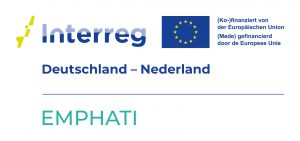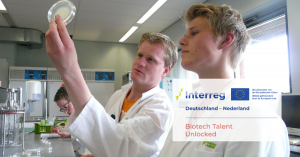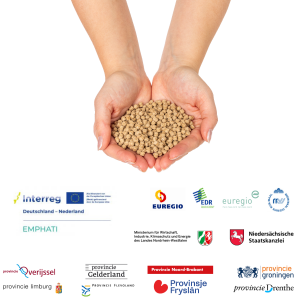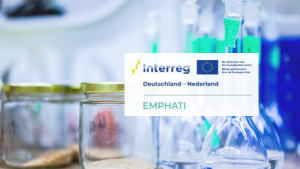
The EMPHATI project is set to commence following the award of an Interreg VIA grant of €1.87 million on Tuesday, December 20. Interreg is a European funding program for spatial and regional development. In the EMPHATI project, Dutch and German companies and research institutions will collaborate on developing new sustainable and environmentally friendly products based on PHA (polyhydroxyalkanoates). PHAs are natural plastics that are biologically degradable, making them a promising and sustainable alternative to fossil-based plastics derived from oil. As a partner, the BIO Cooperative will bridge the gap to the broader plastics processing industry in Northern Netherlands.
Cor Kamminga, Chairman of the BIO Cooperative, expressed enthusiasm about the grant: “This subsidy enables us to explore how to better and more economically utilize PHA, which is biodegradable, as an alternative to oil-based plastics. In this project, we are establishing a cross-border business cluster around the PHA value chain. This consortium will involve Dutch and German companies and research institutions working on PHA applications. This includes joint research, knowledge transfer, and, of course, PHA production. We anticipate significant economic impact and job creation in Northern Netherlands.”
The grant for the EMPHATI project is the second to be awarded in a short period: on Thursday, December 8, 2022, the Interreg subsidy application for the Biotech Talent Unlocked project was also approved.
Room for New Initiatives
The project partners in the EMPHATI project include: 3N Kompetenzzentrum e.V., Ecoras, bekuplast GmbH, TKT Kunststoff-Technik GmbH, H&P Moulding Emmen B.V., IST Ficotex e.K., Hochschule Bremen, NHL Stenden, BINDER 3D B.V., Avans Hogeschool, Hanzehogeschool Groningen, and Netzwerk Oberfläche NRW e.V. Kamminga added: “The BIO Cooperative is responsible for the so-called ‘open section’ of the EMPHATI project. This section allows for the development and support of new initiatives. It is accessible to parties active across the entire PHA value chain: from production to application.”
Sustainable Alternative
In the Netherlands, as well as globally, there is a push to replace fossil plastics with biobased and biodegradable materials. The PHA polymer family is particularly attractive due to its great structural diversity (monomers, homopolymers, block-copolymers, functional and graft polymers), which enables products with a wide range of properties. Additionally, PHAs are degradable in natural environments, including water. This project aims to reduce production costs, among other things, by incorporating natural fibers. The potential of PHAs is significant, and the grant for the EMPHATI project enables the partners to start realizing these opportunities.
Timeline
The EMPHATI project is set to begin in the first quarter of 2023. The funding will extend through to 2025, with initial results expected in the third quarter of 2023.





